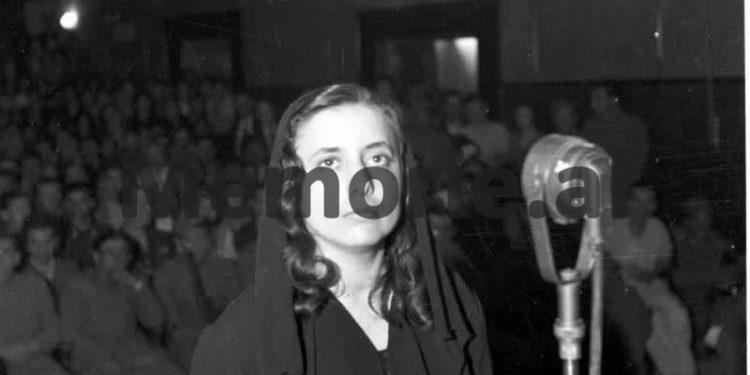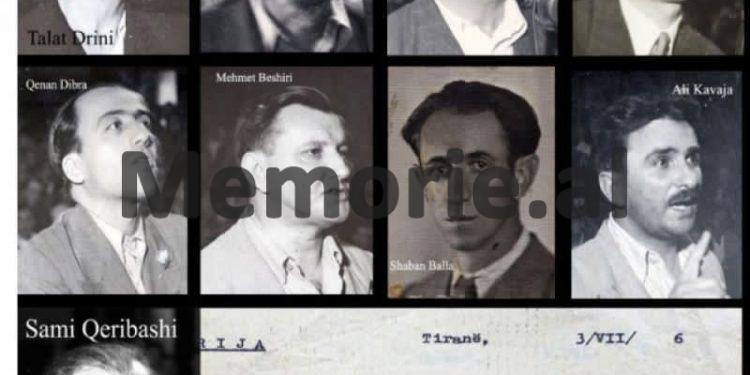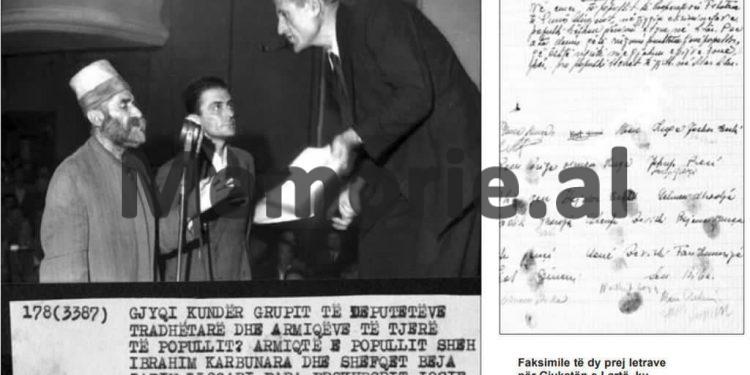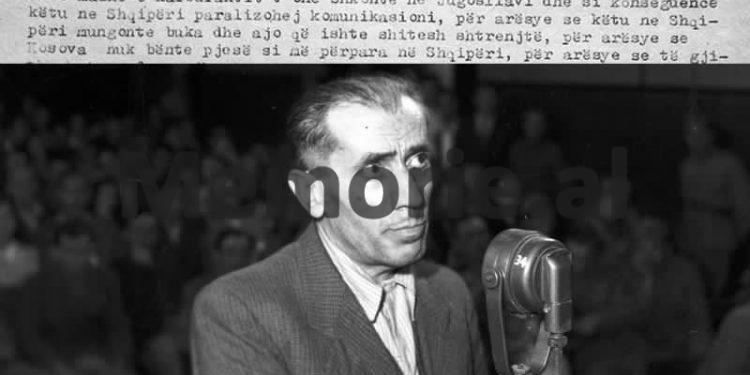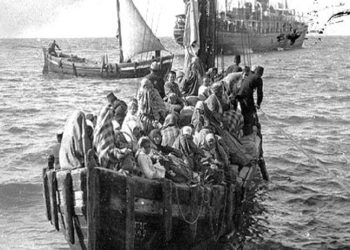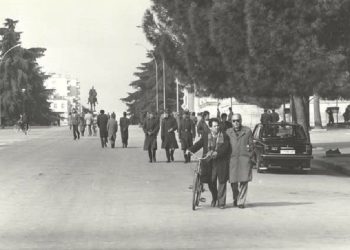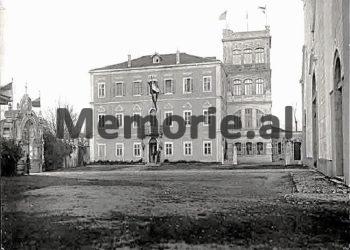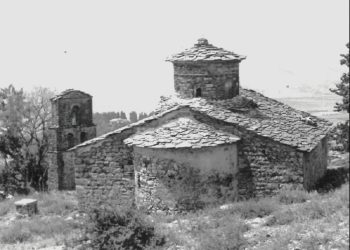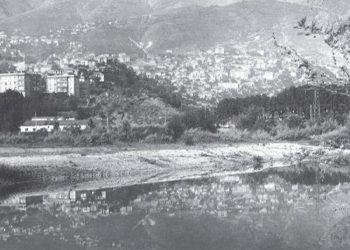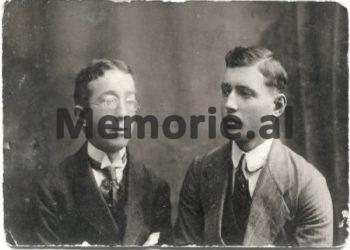Dashnor Kaloçi
The third part
Memorie.al/ publishes some archival documents extracted from the Archive of the Ministry of Internal Affairs which belong to the investigative and judicial file of the so-called “Group of Deputies”, which included 24 defendants and among them names and well-known personalities of during the Anti-Fascist National Liberation War and then deputies of the Albanian Parliament or in the Presidency of the Democratic Front of Albania headed by Colonel-General, Enver Hoxha, as Shefqet Beja, Dr. Enver Sazani, Sheh Ibrahim Karbunara, etc., who were brought before a military court headed by Major Niko Çeta and prosecutor Josif Pashko.
What were the accusations formulated by the trial panel against the 24 defendants: Shefqet Beja, Enver Sazani, Sheh Ibrahimi (Karbunara), Selaudin Toto, Irfan Majuni, Tefik Deliallisi, Hysen Shehu, Salim Kokalari, Sulo Konjari, Ramazan Tabaku, Gjovalin Vlashi , Rustem Sharra, Xhevat Xhafa, Rram Marku, Beqir Çela, Riza Alizoti, Sulo Klosi, Saggioti Paolo, Foto Bala, Abdyl Kokoshi, Shefki Minarolli, Pertef Karagjozi, Mehmet Prishtina and Agathokli Xhitoni?
What did the defendants of the “Parliamentary Group” testify during the investigative and judicial process, regarding: their organization, the branches they had in different districts of the country, the people who headed them, the connections with the anti-communist resistance groups that were on the run, or nationalist exponents of Balli and Legality who were in the Italian camps, the support they had from the Anglo-Americans and their missions operating in Albania, the connections with senior senior military of the Ministry of National Defense and that of Internal Affairs, and to people with high functions, near Enver Hoxha, etc.
The documents we are publishing in this article belong to the judicial and investigative file of the so-called “Group of Deputies” who were arrested and taken as defendants by the communist regime of Enver Hoxha, being placed in the dock of the accused in early September. 1947. In that trial which took place in the Cinema “17 Nëntori” of the capital from 4 to 27 September, when the claim was given, 24 people were tried as defendants, most of whom were well-known personalities. of the Antifascist National Liberation War.
Most of them were well-known intellectuals who had graduated from Western universities and some of them, such as Shefqet Beja, Enver Sazani and Sheh Ibrahim Karbunara, were members of the Albanian Parliament, nominated as candidates of the Democratic Front led from the Communist Party led by Enver Hoxha.
Apart from these three very well-known nationalists and very popular all over the country, who were the leaders of that group of defendants, known as the “Group of Deputies”, a large part of them were anti-Zogists and had supported or had taken an active part in the Anti-Fascist National Liberation War. Also, in that group were other intellectuals and various merchants, who had not joined any of the three political forces (Balli, Legality and the Communist Party) during the war, but who had frozen and embraced liberal ideas. -democrats of Western countries where they had studied, having strong anti-communist tendencies.
The trial of the “Group of Deputies” which began with a great pomoz by the propaganda of the communist regime, making available its entire arsenal of radio, newspapers and posters pasted on the walls, in terms of size and importance of his, was the second largest process developed up to that time since the end of the War. The first trial took place in March 1945, known as the “Special Trial against War Criminals,” and at the dock of that trial, 64 people appeared, most of them holding senior positions. in all Albanian governments from that of Ismail Qemali, to those under German occupation, such as deputies, prime ministers, ministers, prefects, mayors, ambassadors, senior military, etc.
Unlike the Special Court of March 1945, where all those persons whom the communist regime of Enver Hoxha had declared as “enemies and war criminals” were tried as defendants, the trial of the Group of Deputies, which began on September 4, in 1947, there was an even greater political and social burden, and of extraordinary interest, as some of the personalities who had joined the ranks of the Democratic Front, led by the newly ruling Communist Party, were tried there.
From various testimonies obtained from the family members of the “Group of Deputies”, as well as from the former military of the Ministry of Interior of that time, almost all the defendants of that group, during the investigation process were subjected to torture by the most inhuman in order to accept the accusations leveled against them by the investigators. It is clearly seen from the court file of that process, where some of the defendants during their trial denied the evidence they gave during the investigation, saying: “We were not able and we signed them.”
In addition to those testimonies denied in that trial, there is much other evidence by the defendants in that trial, which speaks of their anti-communist activity and activity, starting from the period of the War until the time they were arrested. , where Sheqet Beja, Enver Sazani, Ibrahim Karbunara, Hysen Shehu, Tefik Deliallisi, Sulo Kloso, Salim Kokalari, Beqir Çela, etc., have accepted all their activity aimed at overthrowing the Communist Government of Enver Hoxha. Also, in that court file it is seen that the defendants have admitted their connections and cooperation with the Anglo-American missions led by Harry Fultz and General Hodgson, as well as the connections with the main nationalist exponents of Balli and Legality, who were in exile or in fled through the mountains.
In addition to the many testimonies made by the defendants of that trial, (always referring to the file in question), which show their connections and anti-communist activity to overthrow the communist regime, one of the most interesting testimonies in that trial is that made by Tefik Deliallisi, where he tells about the conversation made at the house of Ymer Keçi in Tirana, where Ymeri charged Hamdi Kacolles, (the man who served next to Myslym Peza) with the assassination of Colonel-General, Enver Hoxha and Koci Xoxa, during the visit that they would do in Peza.
Although Memorie.al has the entire court file of this group, which consists of 173 typed pages and has been extracted from the Archive of the Ministry of Internal Affairs, we decided to publish only some of its main parts, giving those in the original version, as they appear in the relevant file.
Minutes of the trial of the “Group of Deputies”
Judging Court
Chairman: Major Niko Çeta
Member: Captain I, Nexhat Hyseni
Captain II, Mustafa Iljazi
Chief Secretary: Aspirant Thoma Rino
Prosecutor: Deputy General Prosecutor, Josif Pashko
Defendants
- Shefqet Beja
- Enver Sazani
- Sheh Ibrahimi (Karbunara)
- Selaudin Toto
- Irfan Majuni
- Tefik Deliallisi
- Hysen Shehu
- Salim Kokalari
- Sulo Konjari
- Ramazan Tabaku
- Gjovalin Vlashi
- Rustem Sharra
- Xhevat Xhafa
- Rram Marku
- Beqir Çela
- Riza Alizoti
- Sulo Klosi
- Saggioti Paolo
- Photo Bala
- Abdyl Kokoshi
- Shefki Minarolli
- Pertef Karagjozi
- Mehmet Prishtina
- Agathokli Xhitoni
Followed by the last number
Indictment
Defendant Xhevat Xhafa
When they came from Durrës to Kavaja, Shefqet Beja, Tefik Deliallisi, and Salim Kokalari were also Rusto Sharra.
Defendant Salim Kokalari: When we went to Kavaja, it seems to me that this was also.
Defendant Rusto Sharra continues: I have attended the hearing only more than twice. Dervish Iba told me about a meeting that took place, but he did not say anything about what was discussed. He told me that this thing was nothing. When Sejdaj was arrested, I was scared and I was lying like a rabbit. On this occasion we suspended committee meetings and I have not even met with them anymore.
Defendant Xhaf Xhafa: We had meetings with this as well.
Defendant Rusto Sharra continues: I left the organization in Fruer 1946, and they continued to work even later. Ramo Abili, I sent aid from time to time every 15 days through the villager, until he was killed and the villager fled in Fruer 1946. The work I did is harmful but that I fell victim to…
Defendant’s defense attorney was asked if he had anything to ask and said he did not.
You sang the depositions made before the investigation and accepted them.
Decision: For the continuation of the trial, the audience is postponed to the next date 12. 9.1947 At 15 pm.
Testimony of Prof. Photo Balas
From Delvina Doctor Riza Resuli, in Përmet Agathokli Xhitoni, in Konispol Rexhep Plaku, in Saranda Uran Selfo, in Tepelena Zenel Shehu. On August 23, 1945 I went to Korça, where I met with Heqrem Hadon and Doctor Lito, to whom he spoke about the committee. On this occasion, Eqeremi told me that he knew and when I asked him if they had a committee, but I did not go. Dissatisfied with these elements: Ligor Cami, Niko Stralla, Thoma Plasa, Stavri Katundi, Aleko Turtulli and others, but in indirect ways.
In December 1945, I returned to Gjirokastra, in Përmet I met with Agathokli Gitoni, with whom I spoke about the Balli organization and we talked about dissatisfaction about the measures taken by the committee. Agathokli told me that he had had contact with some Englishmen he had taken home, but had not talked to them about the organization. He told me that a delegate from Gjirokastra had gone to Përmet, either Aqifi or Pertefi, who had talked about the organization of Balli and had told him to connect with Greek-Finnish elements, as our activity was related to the activity of them.
In Përmet I also talked to Hilmi Doku, who was an education inspector. Agathokliu told me that they needed some money so they wanted to have some help from us. I told him that when I go to Gjirokastra, I will talk to the committee about money issues. I stayed in Përmet for 12 hours and slept with Agathokli. When I went to Gjirokastra I met Isufi, who after I asked him told me that a meeting had been held and it was decided to sabotage the elections, but the result was negative.
They kept in touch with the central government through those who went to Tirana, but mostly Pertef Isufi and Aqifi. We have collected help from various traders up to 2,000 net napoleons, collected by Pertefi and Aqifi as Gjirokastra were. The help was given by big traders, such as Papavangjeli, Milto Lito, etc.
Abdyl Kokoshi sent us a sum of money through Pertef Karagjozi, who had instructed him that things were going well and that we should be careful, because soon we will have an event that would satisfy us all. I knew the purpose of the Balli organization that was not in the interest of the people, but it was introduced. In Gjirokastra I had a circle of professors talking against the Government.
With a meeting that took place in the house of culture, Hilmi Hysi protested against not accepting workers and he did this on purpose and after we had talked to him before. Xerri made a living in our organization after being associated with Syrja Selfon, so unfortunately we also collaborated with the North Epirus organization. In the question of the Prosecutor, the defendant said: Isufi told me that the Government is not our tone, because it has used us and will use us, therefore we must work to overthrow it since we have the help of the Anglo-Americans.
Isufi also told me that Abdyl Kokoshi, and Van Filipi, are active and godly elements. The money they sent us from Tirana, we would use for the needs of the organization and to help the families of fugitive or convicted war criminals. I was charged by the organization to sabotage the school lessons and I did this by connecting with a group of professors and some students who were boys from Beljer and Agallar.
I could not do much work in school, after I saw that boyhood did not go back and enter conservative tendencies. Isufi in the meeting said that Power is not in the hands of intellectuals, but in the hands of workers and peasants and those who do not have administrative knowledge and do not know how to maintain it, so we must organize to work and try to get in our power. The work and activity of the people for the reconstruction of the country, we looked at it but it did not interest us.
Isufi told me that the Central Committee of Balli in Tirana was connected with a group of deputies and mentioned the names of Shefqet Beja, Selaudin Toto and Enver Sazani. The instructions brought to us by Pertef Karagjozi from the fugitives from Italy, were not to be active, but to organize and work as much as possible as soon the situation would change. Milto Litua listened to Radio Athens and informed us about the news. We welcomed the Greek provocations because we were interested.
On one occasion when Isufi and Hilmi and I were (?) Over the Greek claims and when Hilmiu said that these Greeks were hitting us on the neck, then Isufi jumped up and said: what are the Greeks doing to make the Greeks better than the Greeks? Those in force today. Defense counsel did not have to ask any questions. You sang the depositions made before the investigation and accepted them.
(Decision: For the continuation of the trial, the hearing is postponed to 13.9.1947 at 3 pm.)
Testimony of the Italian, Paulo Saggioti
The defendant was interrogated: Paolo Saggioti, who after not knowing the Albanian language was interrogated by the regularly sworn translator Abdyl Skënder.
You were appointed as defense counsel, Mr. Fuat Fico, and accepted.
The Prosecutor’s indictment was sung to you and you accepted it.
After being asked, he stated: I came to Albania in 1931 and worked with Aipa. The liberation of Albania found me in Kuçova. With the liberation of Albania we thought that the Agenda would resume work freely and we would return to the Homeland, after the Agenda was settled, we thought either to return to Italy or to continue working calmly here.
After the liberation decided by the Germans in Kuçova, the Minister came, but we were worried because we had a lack of money and it was thought that food was missing. After the situation was clarified, we thought that all Italian companies in Albania should cooperate in order to achieve that each company saves its property. Taraskoni was the Director there, as well as a group of Italian technicians. We were not calm about the main reason for the lack of food and for that we held meetings where we decided to try to keep the first positions with outside help.
These aids consisted of the military aid of the Anglo-Americans who intended to land in Albania and take power. Engineer Tarascon then had ties to the Anglo-Americans. So after we decided in this way, Taraskoni went to Berat and talked to the English Mission about the issue and about any assistance they would give us; so that with their help how to free Kuçova, we would help with fuel the troops that would land.
He also asked them to protect the ownership of Aipa in Kuçova? These were the main conversations then it was discussed about the help that can be given to the workers of the agencies in Albania. As per the instructions given by the British, engineer Tarascon had caused the work to be slowed down as much as possible and to break down the machinery, he also told us to make propaganda with the staff there giving them that the situation would soon change so that they sabotage.
The Minister of Economy, Shtylla, came to Kuçova, who said that the agenda is being requisitioned and in terms of staff, the situation remains unchanged. Later came a commissar who stayed there forever. The Minister’s speech was received coldly. His words were concretized by a Circular that came back to us. We talked about the new situation which was not satisfactory for us. The minister came between the first and second time we had contact with the English.
After the Commissar came there, some Englishmen came and talked to the same ones about the new situation. The English visited distillery no.2 which had been bombed and burned by the Germans; then they went to distillery no.1.
The English left us 150 napoleons of gold, they were in military uniform and one was Colonel or Captain, the other Lieutenant. We gave them some information about the losses and fires we had in Kuçova as well as other conditions in Kuçova, which they would send to Italy./Memorie.al
Continues tomorrow




